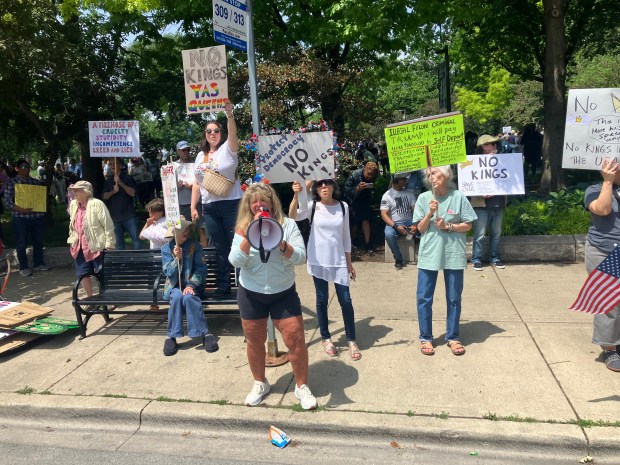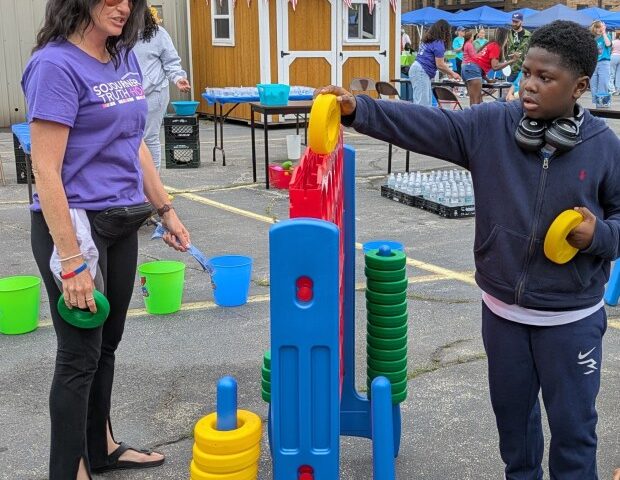Glencoe officials are examining the village’s water situation as its water plant nears 100 years old while conversations with another government agency regarding the possibility of transporting water from the village to the western suburbs continue.
“Charting our water future is an extremely important long-term project and we are going to work on it,” Village President Howard Roin said at a Jan. 31 forum featuring the elected leaders of Glencoe’s Village Board, Park District and library board.
Roin acknowledged conversations about the viability of the village’s water plant – it has been in operation since 1928 – have gone on for more than 25 years.
“It can’t last forever without a major investment,” Roin said.
Yet a major issue in play are the finances with Roin describing the costs of a new water plant as “astronomical.”
After the forum, Village Manager Phil Kiraly said the village received a report in 2014 noting the cost of constructing a new plant would have been approximately $60 million. A decade later, he said those numbers are likely to be much higher.
“That kind of investment is staggering for a community of this size but that is something we need to understand and contemplate in the broader scheme of our needs and how we are able to deliver water,” Kiraly said.
Roin said that one possibility is buying water from another community.
“That is not a very appealing option, but it may be the option,” Roin said.
To formally address the situation, there is a special Village Board meeting scheduled for April 20 to get all the stakeholders up to date and discuss options moving forward.
As the village contemplates how to provide water to its residents, it does so amid ongoing conversations with the DuPage Water Commission, which provides water to 30 communities, about a future collaboration.
“This presents a really exciting, but a really complicated issue,” Roin said. “It’s imperative we get it right.”
Last May the Chicago Tribune reported the DWC was exploring constructing a new pipeline to get Lake Michigan water into the western suburbs amid frustrations with its longstanding relationship with the City of Chicago.
“We are looking into the future to determine the best water supply for the larger suburban areas,” noted DWC Executive Director Paul May in an interview with Pioneer Press. “We are looking at partnering with other regional agencies including Glencoe and regional water wholesalers to advance an alternative to access Lake Michigan water for the suburbs without having to acquire it from the City of Chicago.”
A spokeswoman for the Chicago Department of Water Management had no comment.
May said the current contract with Chicago expires next month, but the agency intends to renew for 15-20 years allowing for construction of the new project.
Glencoe would not be supplying water to DuPage County, Kiraly said.
Instead, the envisioned pipeline would start with a new intake out of Glencoe with lake water flowing to treatment facility near Northbrook. Then utilizing new pipes, it would go west to Wheeling and then to Elmhurst.
However, May said that design is likely to be changed as the project advances.
The DWC is considering two other routes in other parts of the Chicago area, but May said those routes are not preferred.
What the DWC would pay Glencoe has yet to be determined, according to May. Currently it pays $4.54 per 1,000 gallons to Chicago.
“It would be preferable than buying water from the City of Chicago,” May said. “It is an opportunity for the suburbs to take a long look into the future and pursue an alternative that situates northeastern Illinois for a very secure and stable water future while much of the country struggled with an uncertain future.”
May said the DWC is not at this time negotiating with any of Glencoe’s neighbors on the lakefront regarding the pipeline.
Kiraly said they are very early in the process and has yet to bring in any engineering support but the village may issue a request for proposal in the next couple of months for that support and further analysis.
“This is a decade plus ahead of us so we are all in the preliminary stages of how this might work,” Kiraly said. “We are definitely interested in having a dialogue and what it could mean for all of us.”
Among the other stakeholders in the conversation are the Northwest Water Commission and the Northwest Suburban Municipal Joint Action Water Agency.
Glencoe had discussions many years ago about forging a relationship, but they did not materialize.
Daniel I. Dorfman is a freelance reporter with Pioneer Press.




